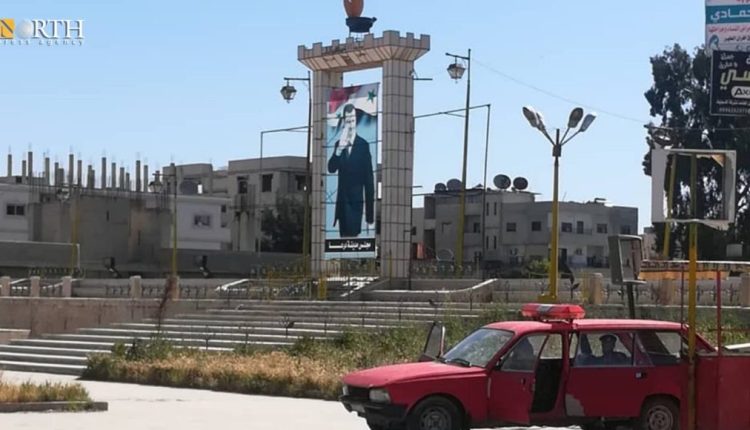By Ihsan Muhammad
DARAA, Syria (North Press) – After the Syrian government recaptured Daraa Governorate and its countryside in southern Syria in 2018, humanitarian organizations ceased their operations in the area, as the unemployment rate has increased and the cultivated areas decreased.
Khaled al-Jabawi, a former employee of a humanitarian organization that operated in Daraa, tells North Press that after the government took control of Daraa, it imposed strict and administrative restrictions on humanitarian organizations.
Al-Jabawi says there was an evident fear of harassment or threats, in addition to the difficulty of obtaining the necessary permits to operate. These combined factors made it extremely difficult for organizations to continue providing their services.
Impact of security changes
Al-Jabawi adds that the area has experienced tensions and clashes since 2018, as these tensions have had an impact on the work of humanitarian organizations and instability hinders the field teams’ access and exposes them to risks.
He points out that there are no accurate statistics available to everyone, but he said that thousands of employees lost their work due to cessation of work.
According to a report published by the U.N. Office for Coordination of Humanitarian Affairs (OCHA) in August 2022, 11 humanitarian organizations have stopped operating in Daraa since 2018.
The report noted that these organizations operated under the umbrella of the U.N. and received support from them, working in various fields such as health, education, humanitarian services, and child support.
The prominent organizations among them were Care International, Doctors without Borders, and Save the Children.
Doctors without Borders, which focused on healthcare, said in a report in March 2021 that in many areas such as Daraa, Eastern Ghouta, Hama and Homs governorates in central Syria, they were unable to continue their work and support for medical facilities after the Syrian government regained control of these areas.
Significant deterioration
Al-Jabawi indicates that the cessation of humanitarian organizations led to deterioration in health and education services, as many clinics and hospitals, such as those in the towns of Eastern Ghariyah, Kahil, and the city of Tafas, in the west of Daraa.
Additionally, many educational programs and initiatives aimed at supporting schools and educating children were impacted and halted, negatively impacting education process.
He mentions that there were some attempts to fill the gap, but these efforts were limited due to a lack of resources and support. They relied on local donations and assistance from expatriates, but this was not sufficient to meet all needs.
Al-Jabawi emphasizes that the impact of the cessation of humanitarian organizations’ work was significant on the economic and living conditions of families in Daraa.
He says the Future Horizons Organization, one of the local organizations in Daraa that receives funding from donors and implements projects, had around 600 employees with minimum salaries of $200 and some earning more than $700.
He adds that the cessation of these organizations affected not only their employees but also truck drivers, distribution vehicle owners, and warehouse owners who rented out storage spaces.
International and local reports that documented the impact of the cessation of humanitarian organizations’ work on residents of Daraa noted to the deterioration of health, educational, and economic conditions, and the urgent need to resume humanitarian aid in the region.
Cessation of support affects agriculture
Abdulhakim al-Masri, Minister of Finance and Economy in the Interim Government, the political wing of the Turkish-backed armed opposition factions, aka the Syrian National Army (SNA), told North Press that the agricultural sector in Daraa is unstable due to high production costs, marketing difficulties, and security instability.
Before the Syrian government took control over Daraa, the humanitarian organizations were operating in the area in coordination with the Interim Government that ran the affairs of the area through “governorate council.”
The “governorate council” coordinated between organizations and local councils in the towns and villages of the area, besides implementing joint projects with these organizations, including health institutes managed by the Health Directorate affiliated with the Interim Government.
Al-Masri adds that the lack of labor due to youth migration or the inability of some to move because of the presence of security and military checkpoints has led to a decline in the cultivated areas.
He points out that there are large areas of agricultural land that are not being cultivated due to the high costs of farming and the continuous fear of security tension and government forces’ campaigns on cities and towns.

